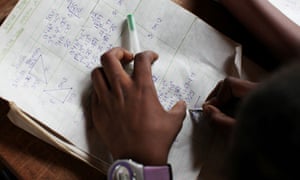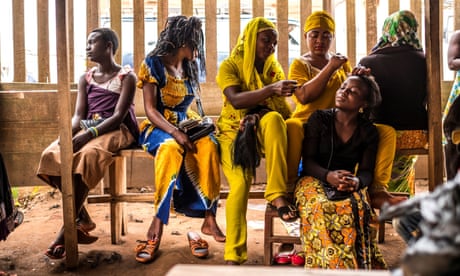STORY HIGHLIGHTS
A new World Bank report notes that Sub-Saharan Africa’s cities are crowded, disconnected and costly
African urban areas contain 472 million people, and that number is expected to double over the next 25 years
If well managed, cities can help countries accelerate growth and “open the doors” to global markets
WASHINGTON, February 9, 2017 – Urbanization is a source of dynamism that can enhance productivity and increase economic integration, says a new World Bank report, Africa’s Cities: Opening Doors to the World, released today.
If well managed, cities can help countries accelerate growth and “open the doors” to global markets in two ways: (i) by creating productive environments that attract international investment and increase economic efficiency and (ii) by creating livable environments that prevent urban costs from rising excessively with increased densification. By generating agglomeration economies, cities can enhance productivity and spur innovation and national economic diversification.
However in Africa, concentration of people in cities has not been accompanied by economic density. Typical African cities share three features that constrain urban development and create daily challenges for businesses and residents: they are crowded, disconnected, and costly. To support the development of cities that work—cities that are livable, connected, and affordable, and therefore economically dense—the report calls for policy makers to direct attention toward the deeper structural and institutional problems that misallocate land, fragment development, and limit productivity.
Africa’s cities are quickly gaining in population. Urban areas contain 472 million people. That number will double over the next 25 years. The largest cities grow as fast as 4 percent annually. Productive jobs, affordable housing, and efficient infrastructure will be urgently needed for residents and newcomers.
The growth of cities will be central to development in Africa as well as elsewhere. But for urbanization to bring the benefits that it should, cities will need to offer incentives to investors through agglomeration and higher productivity.
Cities also must become more livable to their residents by offering services, amenities, and housing for the poor and the middle class. Mayors and ministries will need to resolve structural problems and improve conditions for both people and businesses.
Starting with reforms to land markets and regulations, while increasing and coordinating early infrastructure investments, African governments can build cities that work. Successful urbanization will also support Africa’s agricultural and rural transformation by effectively absorbing the labor being released by these sectors; by providing a market for agricultural produce; and by financing further transformation and commercialization.
Key Recommendations
Reform urban land markets (simplify property rights, strengthen city plans)—over the next 20 years, growth in Africa’s urban populations will increase new demand for infrastructure, for housing and other physical structures, and for amenities. To meet this new demand, city leaders and planners must use adaptable strategies. Plans and regulations should allow the best use of land—but they should also permit uses, and users, to change over time, as demand evolves further. Three key considerations will be how to handle land and property rights; how to value land and manage land prices; and land use and urban planning.
Coordinate early infrastructure investments. Cities must improve the institutional and the physical and infrastructural structures, making them more livable and affordable for people and more attractive to business.





